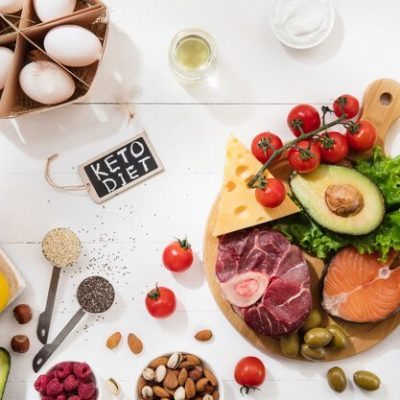In many diet and exercise plans, we’ve often been told to steer clear of carbs. Simple carbs, starchy carbs, and fibrous carbs all get a bad reputation, but are they all truly harmful? The reality is that many people can eat carbs and still shed pounds. Let’s delve deeper to identify which carbs are more beneficial and which ones you should cut from your diet.
This post may include affiliate links that help keep this content free. Please check our disclosure for more details.
Web MD describes carbohydrates as “a source of energy; they are mainly sugars and starches that the body breaks down into glucose to fuel its cells.” There are three types of carbohydrates: simple, starchy, and fibrous. What sets them apart?
Simple carbs, often referred to as sugar carbs, are considered the “bad carbs.” They are present in processed and refined sugars, making our favorite sodas, syrups, and packaged snacks (like doughnuts, M&Ms, Snickers, pies, and cakes) taste delicious. These carbs are quickly broken down by the body for energy, leading to a quick sugar high followed by a crash. Unfortunately, they offer empty calories with minimal nutritional value, lacking fiber, vitamins, and minerals, which can contribute to weight gain. To make matters worse, they can be highly addictive, causing cravings when you go without them for a while.
Starchy carbs are a type of complex carb found in foods like peas, beans, whole grains, and vegetables. While they also break down into glucose for energy, they take longer to digest, resulting in a slower energy release and making sugar highs and crashes less likely. However, they still aren’t the best carbs to include in your diet.
On the other hand, fibrous carbs are the beneficial ones that can truly support your weight loss efforts. These complex carbs do not break down easily, slowing down overall digestion and food absorption. As the American Diabetes Association (ADA) explains, “Fiber is the indigestible part of plant foods, including fruits, vegetables, whole grains, nuts, and legumes. When you consume dietary fiber, most of it passes through the intestines and is not digested.”
If you’re practicing intermittent fasting, managing insulin levels, or aiming to lower your LDL cholesterol, incorporating more fibrous carbs into your diet is essential. They help you feel full and promote regular bowel movements, effectively giving your weight loss a boost. However, if you are insulin resistant or diabetic, you may still need to significantly reduce your carb intake to lose weight.
The ADA recommends that adults aim for 25 to 30 grams of fiber daily. Unfortunately, most Americans fall short of this goal, so any increase in fiber can be beneficial.
Wondering how to add more fibrous carbs to your meals? Here are some suggestions:
– Include a side of beans or legumes with your meals—options like lentils, white beans, pintos, kidney beans, black beans, and chickpeas (garbanzos) are great choices.
– Snack on roasted chickpeas—try a recipe from Love and Lemons that combines a can of chickpeas, olive oil, and your favorite seasonings for a guilt-free treat.
– Swap white pasta for whole wheat pasta in your favorite Italian dishes. If you have gluten sensitivities or allergies, consider using brown rice pasta instead.
– Toss some nuts into your salads—almonds or walnuts can elevate your dish.
– Add berries to your morning oatmeal—fruits with edible seeds are excellent fibrous carb options, according to the ADA.
– Roast cruciferous vegetables like broccoli or Brussels sprouts as a side dish. Just add a bit of olive oil, sea salt, and pepper for a tasty and easy-to-make option.
Note: To prevent stomach discomfort, the ADA advises gradually increasing your fiber intake as you work towards the 30 grams per day goal. They also recommend drinking more water to avoid constipation, which is always a good idea.
Your body needs energy, and choosing the right carbs as part of a whole-food diet can provide that without hindering your weight loss journey. The key is moderation; avoid overindulging in carbs, especially simple carbs and starchy vegetables that are low in fiber.
We often suggest that readers with significant weight to lose or those struggling to shed pounds consider a complete detox from all carbs for a while. This reset can help heal your metabolism and kickstart weight loss.
Once you start paying attention to what you eat, including the types of carbs on your plate and their effects on your body, you’ll likely see real changes in how you look and feel. While fibrous carbs can aid in weight loss, you can achieve quicker results by significantly cutting back on your carb intake.
Not sure where to begin? Reducing carbs (and ensuring you choose the right ones when you do eat them) is just one of the effective strategies we use in our 21-Day Fat Loss Challenge, designed to help you lose up to 21 pounds in just 21 days! You won’t need to count calories or track macros.
The 21-Day Fat Loss Challenge offers a step-by-step plan for eating your way to weight loss with much less effort than you might expect! If you have more than 21 pounds to lose, our challenge can be repeated as many times as needed to reach your target weight. Plus, our methods help balance your body, mindset, and digestive system, ensuring you maintain your weight loss.
The best part? You don’t even have to exercise to lose weight with the 21-Day Fat Loss Challenge. Many of our clients have turned it into a lifestyle and lost over 100 pounds!
Even more rewarding than the weight loss is the feedback we receive from participants about how the program has taught them to change their eating habits and find a sustainable diet that works for them long-term.
We have over 4,000 members in our private support group going through the Challenge together, sharing experiences, results, motivation, and plenty of recipes!
If you’re ready to make some changes in your life, this is the perfect place to start. We will guide you on how to make the necessary adjustments to your diet and lifestyle and how to maintain them beyond the diet.
Click HERE to begin YOUR 21-Day Fat Loss Challenge today!
Feel free to leave a comment below if you enjoyed this article on fibrous carbs or if you have any questions!










